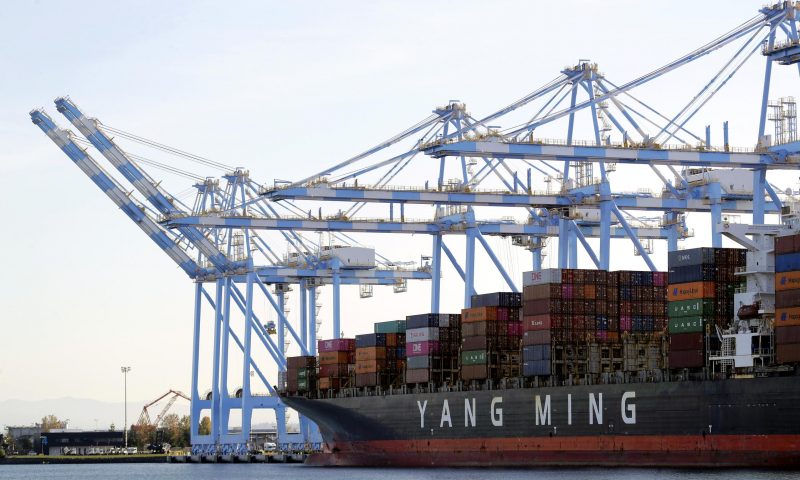Beijing appeared to confirm reports Monday it plans to hold up purchases of key U.S. farm goods at a time the White House is struggling for an economic boost.
CHINA HAS REPORTEDLY told its largest state-run agricultural companies to pause purchases on key U.S. farm goods – escalating tensions with the U.S. and setting up a devastating blow to one of President Donald Trump’s most significant economic priorities.
Bloomberg News first reported Monday that Chinese officials had issued the order for state-owned traders Cofco and Sinograin to cease purchases of American soybeans and pork, citing anonymous sources. Other analysts say the temporary ban will extend to other products such as cotton. Bloomberg reported that China had not yet instructed private companies to halt imports.
Chinese state media appeared to confirm the report, with its state-run Global Times calling the measure an “unsurprising technical move” in response to U.S. criticism of Beijing’s crackdown on pro-democracy demonstrations in Hong Kong.
The move follows a press conference Trump held on Friday that was heavy on threats but short on specifics for how the U.S. would respond to the new sweeping national security legislation for Hong Kong that China’s legislature approved last week, which will likely take effect in September. Speaking in the White House Rose Garden, Trump called the law an “incursion” that amounts to “smothering, absolutely smothering Hong Kong’s freedom.”
The Trump administration now appears pinned between its desire to push back on China’s move on Hong Kong – at a time the White House casts blame on Beijing for the spread of the coronavirus – while also maintaining hopes for a new trade deal after signing the first phase of an agreement in January.
Analysts say China believes that American tough talk on Hong Kong will not amount to any meaningful follow-through as the White House eyes a potential trade pact with Beijing as a potential solution to the devastating economic slump.
“If Trump walks fully from the deal, that in some ways helps him keep up his tough-guy bona fides. On the other hand, it means it’s going to be harder on U.S. farmers,” Scott Kennedy, a senior adviser at the Center for Strategic and International Studies, said of China’s latest moves during an analysis call Monday morning. Kennedy also cited Chinese anger at the extension the Trump administration approved last month for the U.S. ban on products and telecommunications gear from Huawei, the Chinese tech giant.
“This would be a gut punch to certain Americans,” Kennedy said.
The first phase of the potential trade deal the U.S. and China signed in January represented a bid to halt a more than 18-month trade war. It referenced the need to halt the theft of intellectual property and boost Chinese purchases of American goods but was sparse on specifics, particularly how to enforce any of those measures.
Trump pledged at the time to begin the next round of negotiations before the presidential election in November.

